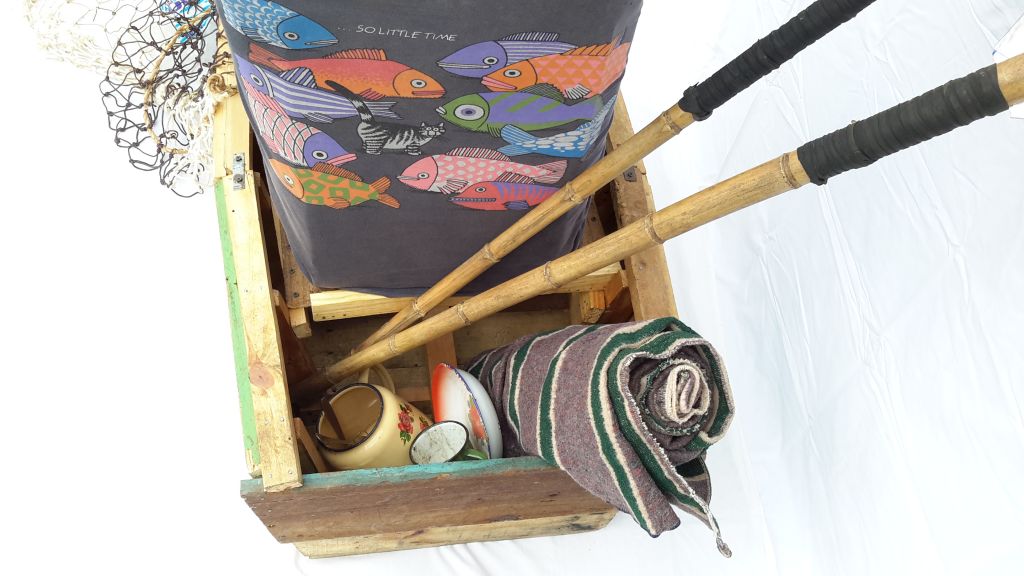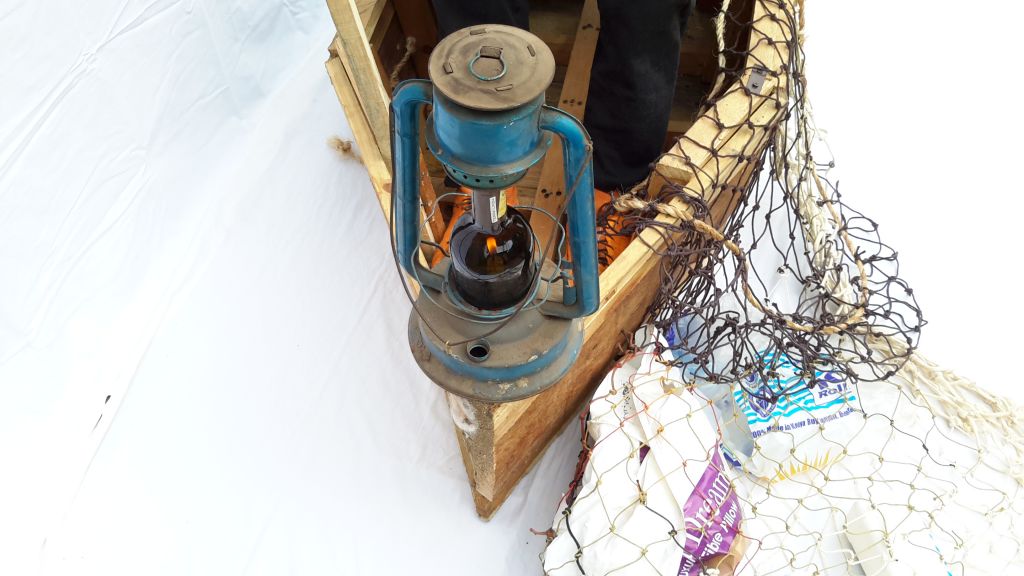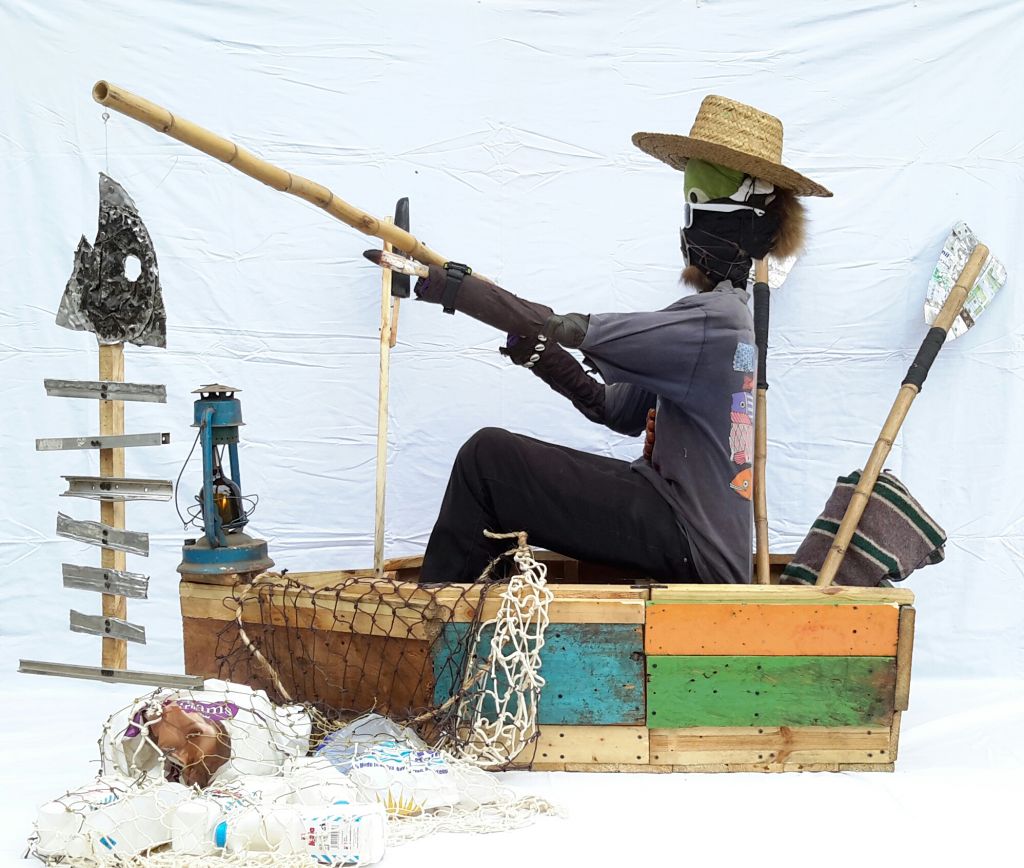An Artist’s Peek into the State of Our Oceans in the Not So Distant Future and What It Would Mean To A People’s Livelihood And Well-being
As a creative who uses recycled material as components for his sculptures and installations, climate change is a major theme Evans Ngure seeks to highlight. With his installation, titled So Little Time, he shares his take on a timely and pressing aspect of one of the effects of climate change.
Through this installation, Ngure takes us into the future, showing us a snapshot of the life of a local fisherman in a world whose oceans are in a deplorable condition after been ravished by the effects of rising temperatures, overfishing, and pollution.
So Little Time depicts a world where the local fisherman, despite being at sea all day and night, has not being able to catch any fish. Even if he does manage to catch something, he has to be aware of other desperate fishermen who often steal what others have being fortunate enough to catch.

Already, we are seeing what effect climate change is having on the behavior of marine life. For instance, the rise in ocean temperature has seen a decrease in levels of oxygen in the water. The need to seek out oxygen-rich water has forced sharks, tuna, mackerel, swordfish, and shad, among others closer to the surface. This makes them easy pickings for not only fishing fleets, but surface predators as well. Combined, they have resulted in the shrinking of fish population.
Warming also disrupts the various ecological habitats. When corals are subjected to temperatures that are warmer than average, they experience coral bleaching. This is where the coral becomes sickly, losing their colorful appearance and turning a stark white.
When corals die, they are no longer able to support the diverse marine species that live on the reefs. This ultimately leads to further reductions in biodiversity. Also, the loss of underwater flora will see the carbon previously absorbed be released back into the atmosphere.

Urban areas might not greatly feel all these effects but fishing communities are on the brink of not only an economical crisis; due to the threat of a major source of income, but a food crisis as well.
Keeping in line with what Evans aims to highlight with his latest installation, new research has shown that communities and fisheries in developing countries will be made worse by climate change.
In several low-income communities, fish act as a crucial source of protein. They also provide micronutrients such as iron and zinc that are vital for brain development in infants. They also have a long-term impact on human health. In such communities, subtraction fish from the diet with few nutritional alternatives could result in a decades-long health crisis.
Not only is fishing a crucial source of nutrition, but for such communities, it also provides economic security. What will happen to the economy of regions where alternative livelihood options are limited?
Immediate action needs to be taken in order to begin remedying this worrying situation. There are efforts being made but these efforts need to be undertaken by each and every one of us. So Little Time speaks on the very short window we have, a window we must all capitalize on.

